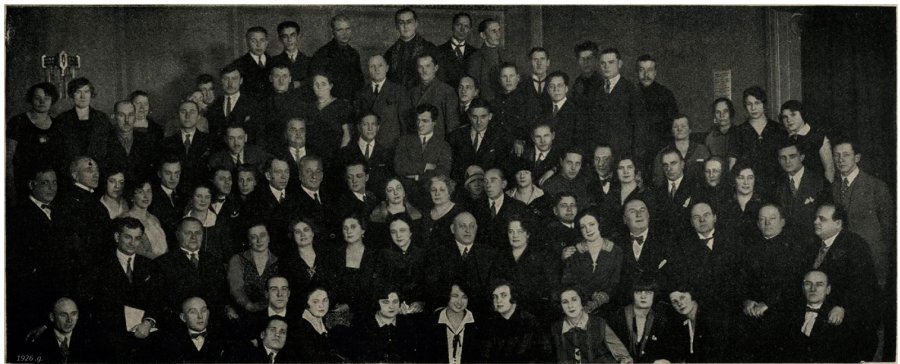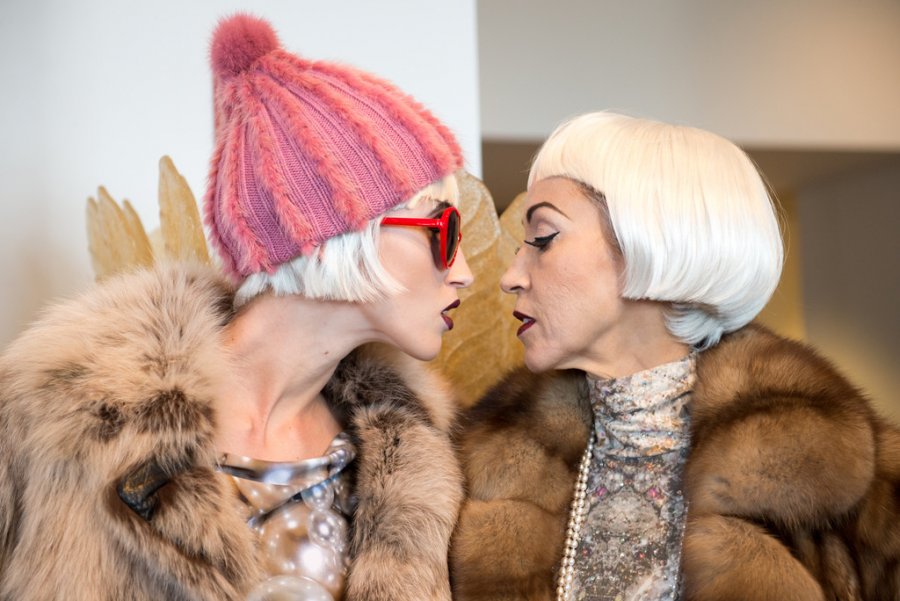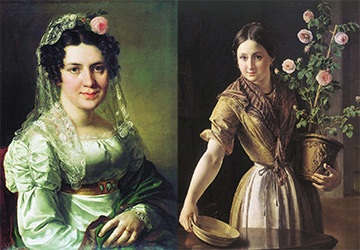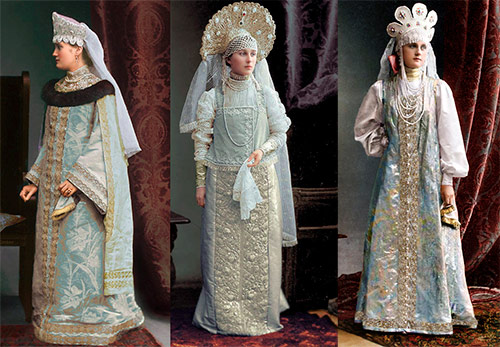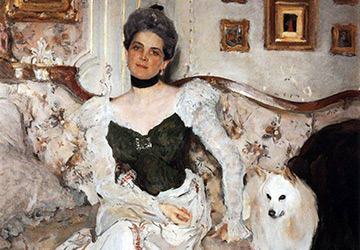Art
Elena Alexandrovna Polevitskaya
Elena Alexandrovna Polevitskaya. At the beginning of the twentieth century, this name was known to all theater-goers. It was fanned with fame and admiration, and among the many acting names of that time, it was the pride of the Russian stage. Elena Polevitskaya glorified the Russian woman with her acting talent, the theme of the actress's work has always been a noble woman with a sense of duty and high civic consciousness.
Her life was filled not only with the joy of creativity, but sometimes the joy was replaced by days and years of a life of anxiety and even sorrow. Elena was born into the family of a modest official of the Tashkent office of the State Bank on June 3 (16) in 1881 in Tashkent. It was not without difficulty that she was admitted to the Alexander Institute in St. Petersburg, whose pupils, in addition to many different subjects, studied the basics of art.
It was for art that the soul of young Elena was drawn. She painted beautifully and had a beautiful voice. In addition, the girl was pretty, unusually slim and plastic. All this made it possible not only to dream about the stage, but to see your dream in reality. And she saw herself as an opera singer. Maybe this would have happened, and she would have had a chance to sing along with the idol of her youth Fyodor Chaliapin, but Elena was in for a heavy blow. With the one with whom she was preparing to marry, there was a break.
Not everyone can stand the loss of their youthful dreams without leaving a trace. Mental emptiness, overthrown love - all this led to a nervous breakdown, as a result of which she lost her voice. The singer's career collapsed, what she saw in reality was forever gone ... Having recovered from a heavy blow, Elena finished two-year pedagogical courses in St. Petersburg with a big silver medal and began to teach drawing at the Alexandrovskaya girls' gymnasium.
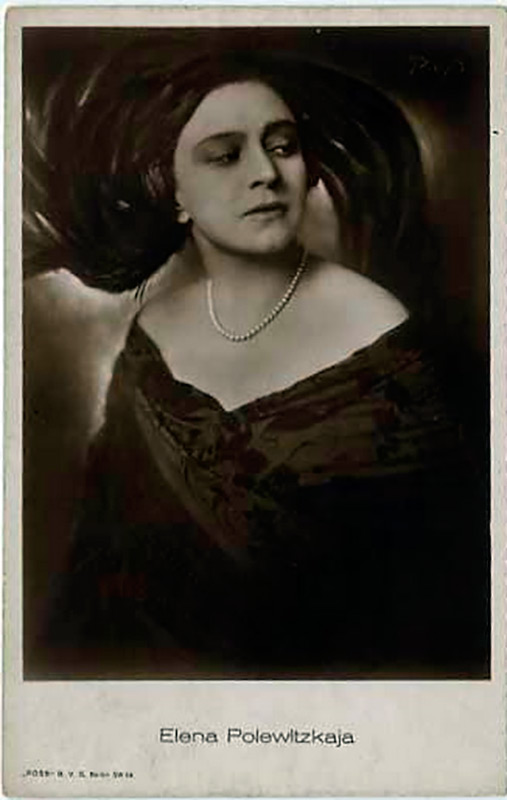
Possessing a talent in painting, Elena Polevitskaya continued her studies, now in this field. She entered the art school. After studying for four years, Elena, after being awarded the "highest prize" for the best watercolor works, suddenly found herself expelled "for academic failure." What happened this time? It was 1905.
The mood among the youth was revolutionary and, seeking justice always and everywhere, Elena ended up in the illegal Union of Teachers, who were engaged in the dissemination of political appeals, participated in demonstrations, and organized strikes. Polevitskaya was dismissed from the women's gymnasium and forbidden to engage in pedagogical work. Another creative path, the path to painting was cut short. And again, difficult days came for Elena.
It was at this time that she met the art of Vera Komissarzhevskaya, and this forever determined her further path - the path of a dramatic actress. She entered the music and drama school. And already here, in her stage work, another talent, the talent of a dramatic actress, manifested itself. It was here, for the first time, she played Katerina in The Thunderstorm, Larissa in The Dowry, Mary Stuart. All these roles will bring her fame in the future.
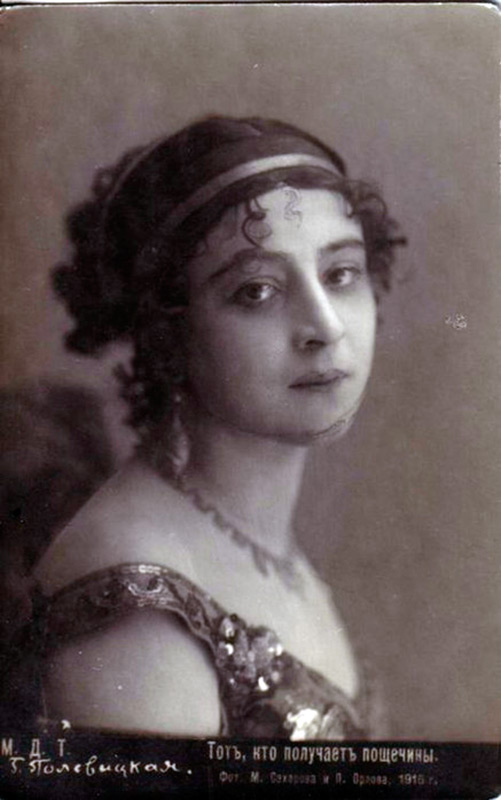
An ardent admirer of her talent was the artist Boris Mikhailovich Kustodiev, who was a subtle portrait psychologist. He was able to incredibly accurately feel the soul of a person, to see his beauty - face, body, spirit. He immediately noted the uncommon nature of Elena. That's when he painted a portrait of a young actress. A great creative friendship arose between them. Later Polevitskaya posed for him for the sculpture "Salome". Elena more than once turned to him for advice in search of stage costumes for this or that character, and Kustodiev's sketches always helped her in this.
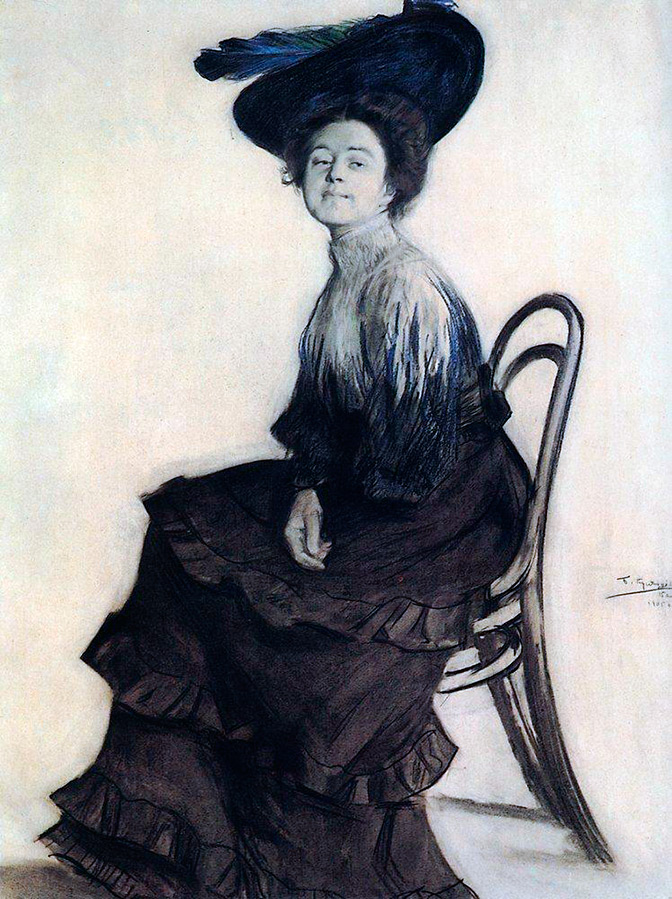
For the first time, as a professional actress, Elena Polevitskaya performed on the stage of Pskov. Here she played different roles - dramatic, tragic and comedic.At that time, many, later famous and famous actors, began their professional lives on the stages of provincial theaters. V. Komissarzhevskaya, M. Savina, V. Davydova, N. Radin, E. Shatrova and many others started this way.
At the beginning of her acting career, Elena was lucky, she ended up in the troupe, where the famous N. Sinelnikov was the director, thanks to whom the talents of the best masters of the Russian stage were discovered. Elena Polevitskaya played on the stages of Kharkov and Kiev, she shocked theatrical Moscow with her performance. During her Moscow tour, among theatergoers, they spoke of her as a bright talent.
Polevitskaya played many beautiful images of Russian women. She gained all-Russian fame by the embodiment of female images from Russian classics: Katerina ("The Thunderstorm" by A. Ostrovsky), Liza ("The Noble Nest" by I. Turgenev), Nastasya Filippovna ("The Idiot" by F. Dostoevsky), Vera ("The Break" by I. Goncharova), Julia ("The Last Victim" by A. Ostrovsky). Director Sinelnikov noted her talent, nobility of movements, beautiful voice.
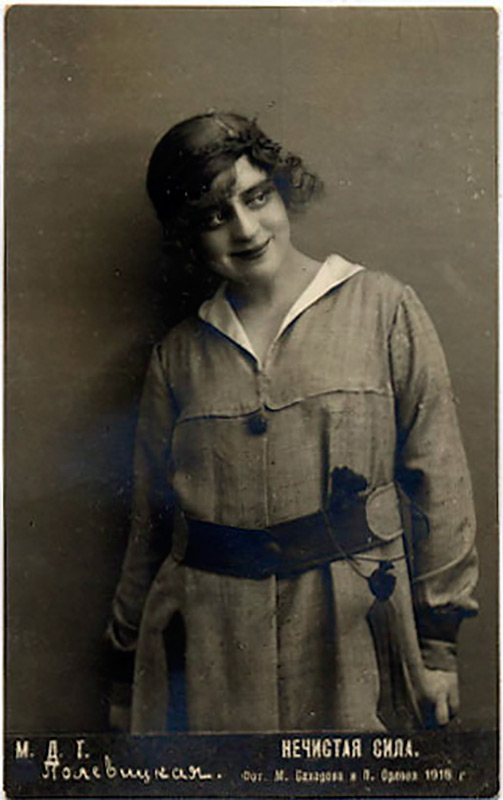
She was invited by the best Moscow theaters, but she greatly appreciated the creative and moral atmosphere created by N. Sinelnikov. The work of this director was also marked by the new Bolshevik government. Lunacharsky invited him to head the Alexandrinsky Theater in Petrograd. E. Polevitskaya was also enrolled in the number of actors in the troupe that was being created. But this was not destined to happen, since Kharkov, in which the acting troupe was then located, passed from hand to hand - now one power, then another, called "white" and "red".
Finally, with one of the parishes of the "whites" on Sinelnikov, persecutions began for allegedly collaborating with the "reds". The director fell seriously ill, and the troupe immediately dispersed - in all directions. Polevitskaya and her husband I. Schmitt by that time, also a theater director, whom she married in the period 1914-1916, accepted an invitation to tour Bulgaria. They thought they were leaving for several months, but it turned out ... It turned out that they could not return.
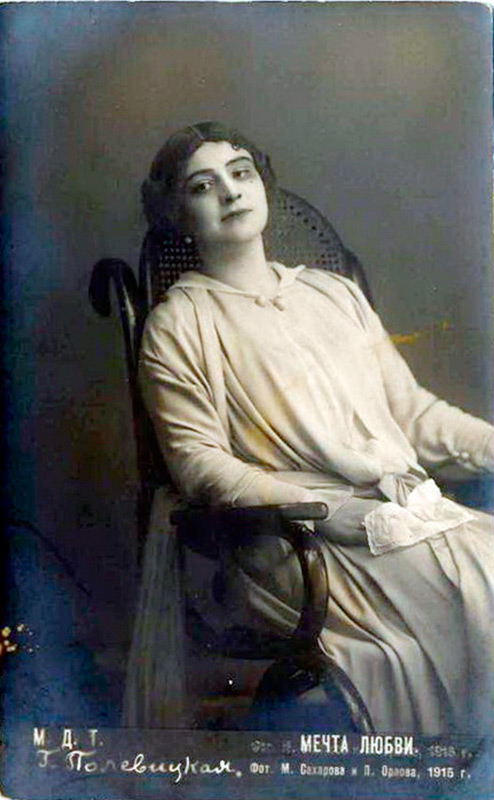
Polevitskaya's tours were held with triumph in Bulgaria, Romania, Germany. In Bulgaria, she was awarded the country's highest national order. But they were eager to go to Russia with all their hearts. Elena wrote to her friends, begged them to help them return to their homeland, but invitations came only on tour. It happened twice - in 1923 and 1924-1925. The actress continued to play on the stages of European theaters, acted in films, was engaged in pedagogical work, and longing for Russia constantly sharpened her, but there was no visa to enter her homeland.
With great success, the actress performed in theaters in Germany, Austria, Czechoslovakia, in the Baltic countries in Russian and German.
In 1934, her husband, suspected by the Nazis of his "non-Aryan" origin, was expelled from the theater in Berlin. They left for Estonia. After the death of her husband, while in the German-occupied territory in the Baltic States, Polevitskaya was arrested, she was sent to a concentration camp, from which she was soon released, thanks to the intervention of friends. Since 1943 she has been living in Vienna, Austria. Here, together with her students, Polevitskaya helped the wounded. After the end of the war, Elena again tries to return to Russia.
Finally, in 1955, she receives permission to return to the USSR. She was 74 years old at that time. But the happy, cheerful actress was ready to give her talent, knowledge and experience to beloved Russia. Elena Polevitskaya was greeted cordially, her creative evenings were held in Moscow, Leningrad, Kiev, Kharkov. She was enrolled in the troupe of the Vakhtangov Theater. Muscovites saw her in the performances "Living Corpse", "Guilty Without Guilt" and many others.
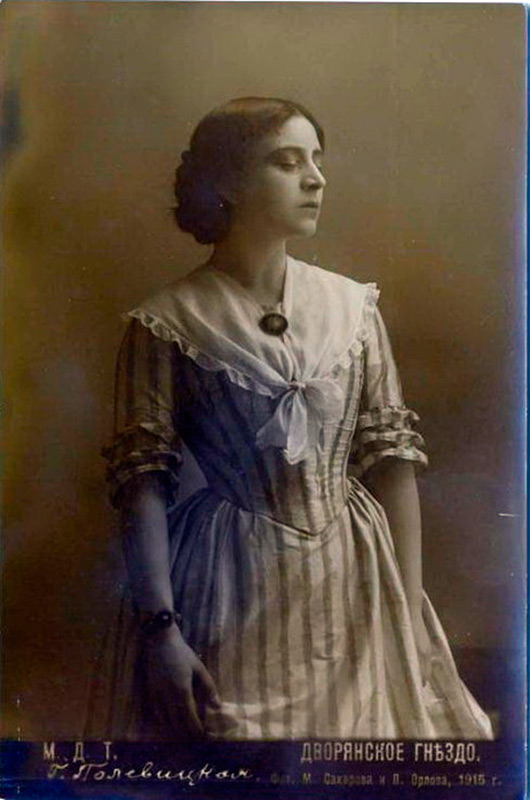
She starred in the films Mumu, The Queen of Spades. Since 1961, Polevitskaya taught at the Theater School. B. Shchukina, where one of her students was L. Chursina. The upbringing of young actors was her main business.
Her joy of returning, her creative activity for the good of Russia gave her a second wind. In a hurry to give to art everything that she is rich in, she began writing a book of memoirs in 1963, which she brought until 1914.The book remained unfinished ... On November 4, 1973, at the age of 92 in Moscow, Elena Aleksandrovna Polevitskaya died.
A bright and noble personality, an unusually talented, uncommon nature, which B. Kustodiev so subtly noted in the portrait, she was always faithful to her vocation and beloved Russia.
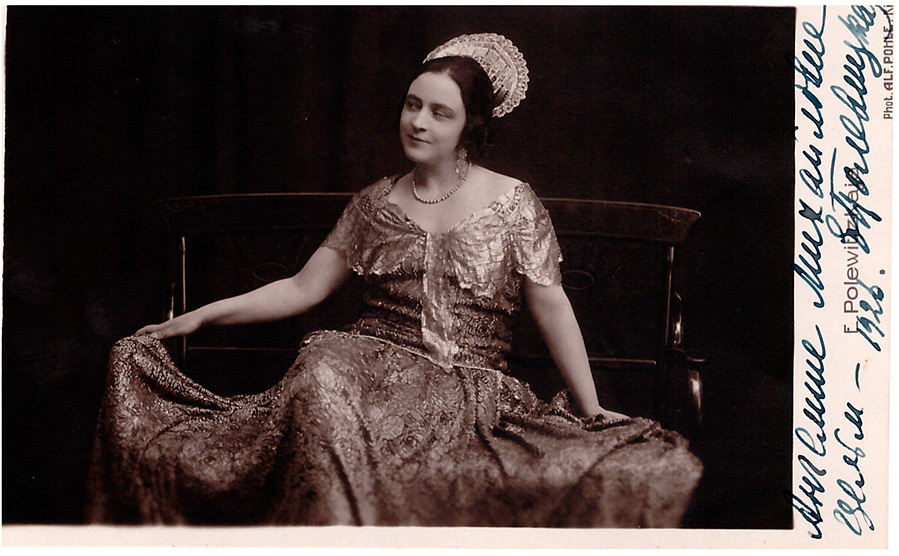
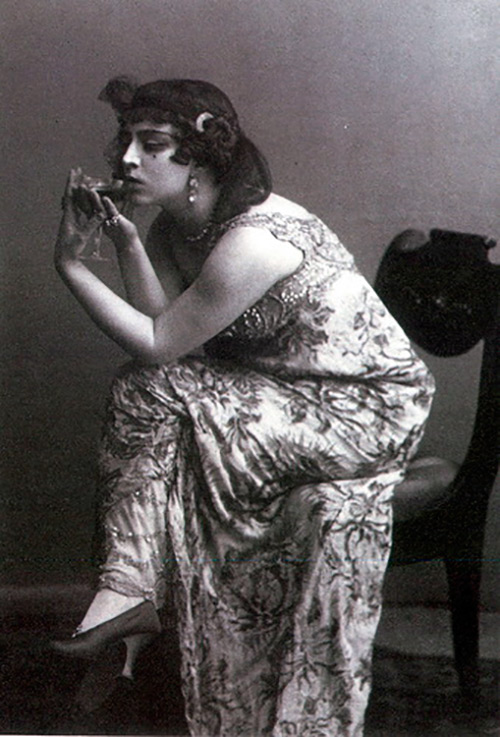
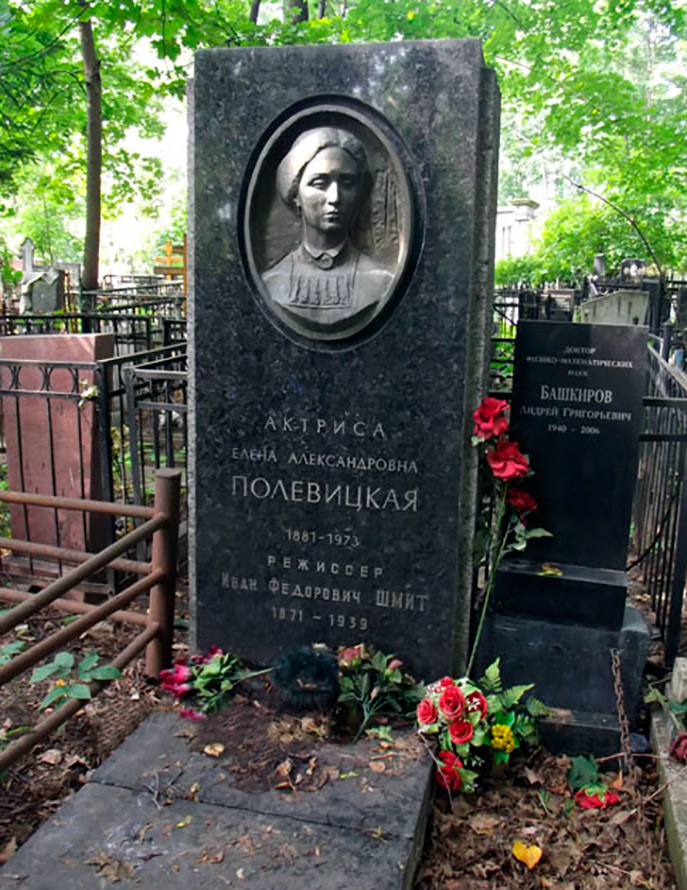
Comments and Reviews
Add a comment
Rating news
Shades of clothing that make women look younger
What shades of hair make women younger: rules and photos
Funny wedding dresses - photos and ideas
12 most expensive down jackets for the winter
How to look 25 at 40: tips from supermodels
Beautiful schoolgirls
Anti-aging haircuts and hairstyles for women
Fashionable skirts for autumn and winter
Fashionable women's trousers for the cold season
Fashionable and stylish sandals for summer 2024
Spring-summer 2024
 Fashionable dresses and tops with thin spaghetti straps
Fashionable dresses and tops with thin spaghetti straps
 Bandana tops: how to wear stylishly and beautifully
Bandana tops: how to wear stylishly and beautifully
 How to put together the perfect men's wardrobe for the summer
How to put together the perfect men's wardrobe for the summer
 Trendy shorts for spring-summer 2024
Trendy shorts for spring-summer 2024
 Fashionable skirts for spring-summer 2024: a guide to online shopping
Fashionable skirts for spring-summer 2024: a guide to online shopping
 The most fashionable dresses spring-summer 2024: styles and colors
The most fashionable dresses spring-summer 2024: styles and colors
 Fashionable total look 2024: image ideas and trends
Fashionable total look 2024: image ideas and trends
